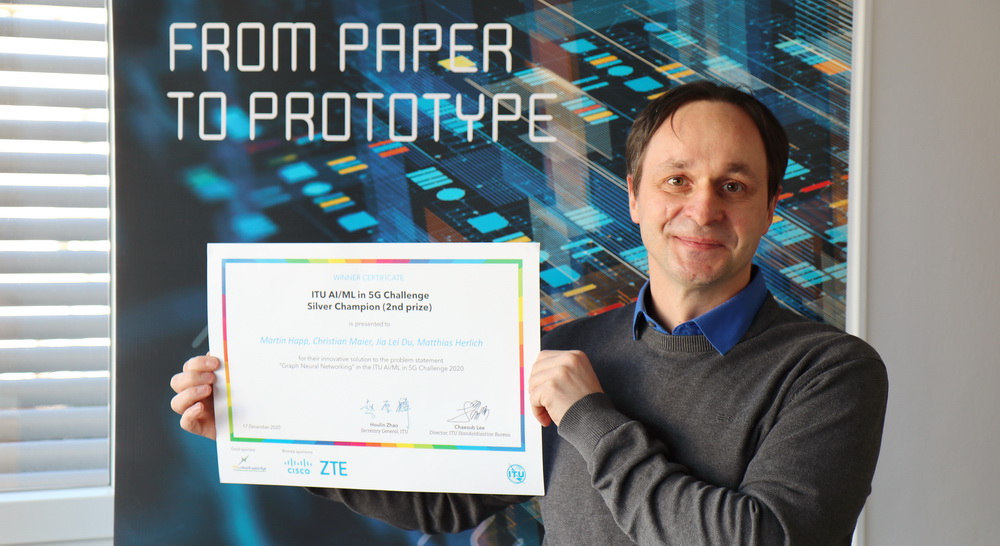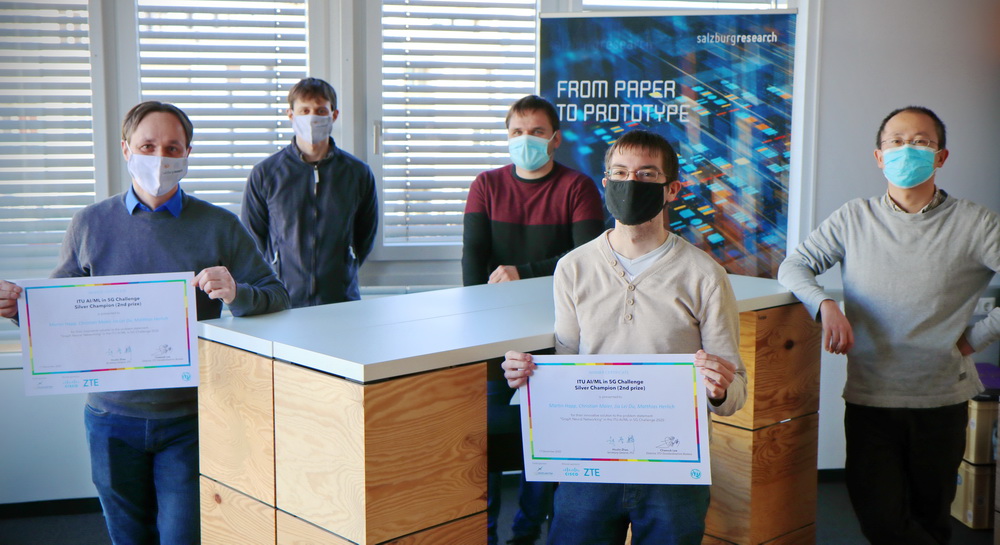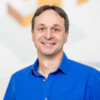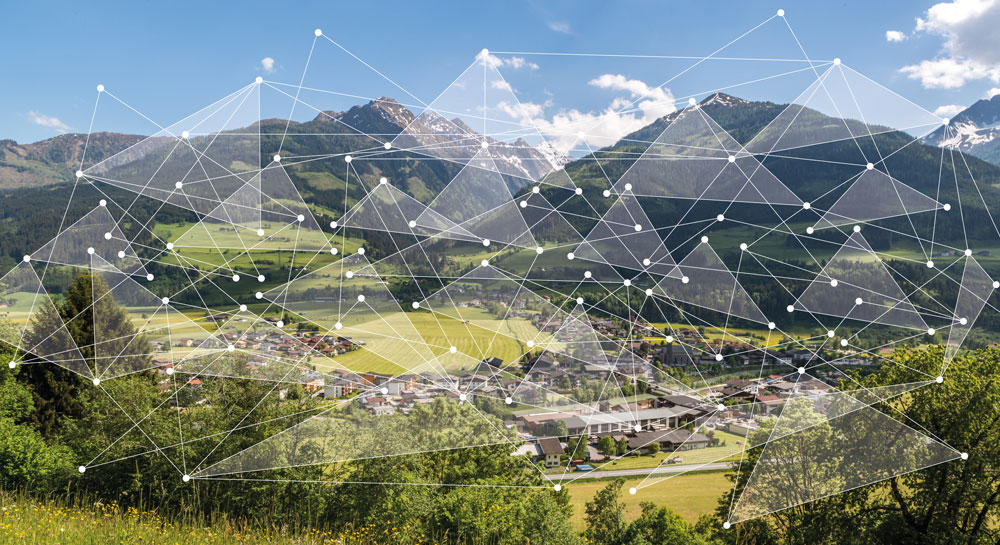
Award: 2nd Place Worldwide in the Area of AI/ML in 5G
Salzburg Research won the silver medal in an international challenge on the topic of artificial intelligence and machine learning in the 5G area. With their know-how, the researchers prevailed against more than 900 international teams.
Communication networks are an important lifeline in our society. So that they can keep pace with the enormous technological progress, in the future they will be operated with the support of artificial intelligence (AI) and machine learning (ML). “Especially with regard to real-time networks, in which transmission guarantees must be given and adhered to, a good and quick prediction of delays in the backbone network is important,” says Peter Dorfinger, Head of Intelligent Connectivity at Salzburg Research. “With the help of reliable forecasts, network operators can quickly reconfigure their network or test different network configurations.”
Numerous organizations around the world are researching how AI/ML can best be used in future networks, including 5G networks. In an international challenge, 911 teams from 62 countries competed with their know-how in 23 individual challenges. The best teams were invited to the final at the end of December 2020. Salzburg Research achieved the excellent second place there across all 23 challenges.

Gold went to China Mobile. Among the other participants were the TU Berlin, Imperial College London, Eurecom, the Chinese Academy of Sciences, Inria, Fraunhofer HHI, NEC, IMDEA and many more.
Efficient AI Solution
The research team achieved the second place primarily due to the efficiency of the developed AI/ML solution: “While the solutions of other teams sometimes had to learn for a whole week, the AI from Salzburg Research was only trained for 48 hours and was still able to predict the delay”, says Dorfinger. The interdisciplinary nature of the research team, consisting of mathematicians and computer scientists, is also decisive for success. “Thanks to our knowledge of networks, we were able to keep the complexity of the system down. The know-how form mathematics ensured additional performance”, continues Dorfinger.
The research and development work of Salzburg Research researchers Martin Happ, Christian Maier, Jia Lei Du and Matthias Herlich took place within the framework of the IDA Lab Salzburg.
Further information:
- ITU KI/ML in 5G Challenge: www.itu.int
- Press release (German): Salzburg Research international ausgezeichnet im Bereich KI/ML in 5G







